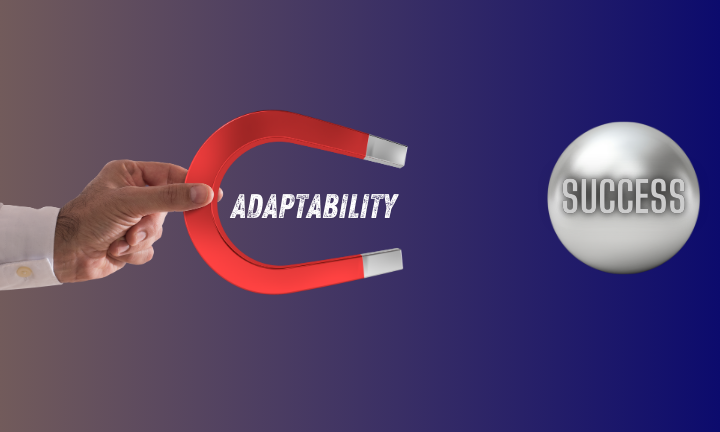The Covid period has proven that adaptability in the workplace is essential to overall business success. Adaptability is super important in business, and it boils down to the people within your organisation and how well they can cope with change. Namely, how well equipped they are to deal with change, which includes everything from a positive mindset to having the tools to succeed.
If your people can adapt to change, your business can flourish even in times of uncertainty. However, if your people are unable to adapt to changing circumstances, this weakness can prove to be the biggest bottleneck to growth that your company can face.
Why is adaptability so important in business in 2024?
Nothing has proven that business is volatile more than the period of change we’re experiencing right now. However, regardless of any situation, business is always changing and evolving and if your company isn’t prepared to adapt, you’ll fall behind.
Market share is becoming less and less stable – with big players losing out to more innovative companies all the time. In fact, the percentage of companies falling out of the top three rankings in their industry increased from 2% in 1960 to 14% in 2008. There’s no doubt that technology has altered how quickly the pace of change is happening, but adaptability allows even the least technologically able businesses to keep up.
However, there is a way to remain at the top of your game, and that is by adapting. If you’re willing to change and adapt, you can keep up with industry changes.
How can your business adapt effectively?
Embrace Continuous Learning
One of the best ways to stay in tune with industry changes and stay ahead of the game is by predicting what will happen. If you keep your eyes peeled, you’ll see how the most innovative software development companies are doing things, and you’ll sense something in the air. That something is change – and when you sense that other companies are adapting and changing to stay relevant, it’s time for you to do the same.
This requires that you have an ability to read and act on signals from your external environment. That might be via understanding what your competitors are doing, looking at how customers are behaving or using your own data to look at how you can keep offering the best services possible. The first step to adaptability is being able to read the game and predict what might happen in order to prepare for change.
Experiment with changes you could make
Once you’ve established the changes that might be coming into play, it’s time to experiment with how you could adapt. The key to this is getting every angle of the business contributing, as they will have specialized ideas about how each area of the business can adapt.
Experimenting with everything from business models, to products, to how you interact with your customers will help you adapt and change in order to be better at what you’re delivering. Fostering this kind of ‘continual improvement’ culture will help your business navigate not only through immense change but also through daily life. Resting on your laurels is a sure fire way to get left behind, so experimenting and innovating is an essential.
Create a more mobile and flexible business
One thing to know about change is that you can’t approach it with a strict attitude. A flexible structure will allow your business to grow and evolve with the times, and an agile approach will mean that you can adapt to change.
Adaptive companies are able to communicate freely, work remotely, and collaborate effectively to reach a shared goal. Conversely a stagnant company that is sure to struggle will be based on hierarchy, have silos within teams and won’t be flexible in their approach to work.
This kind of attitude will ultimately mean that they are unable to attract the best talent, and won’t be able to motivate people in time of strife. A great example of that at the moment is remote working. For years many businesses have put off remote working and using a remote team – although they knew it was important and eventually would become a best practice, businesses didn’t want to try something new. They wanted to remain comfortable.
Now, with everything that’s going on in the world, we can see that creating a more mobile, flexible and agile business would have solved a lot of problems. Looking ahead and trying to create a more adaptable business structure each day as an ongoing process is key to business success.


